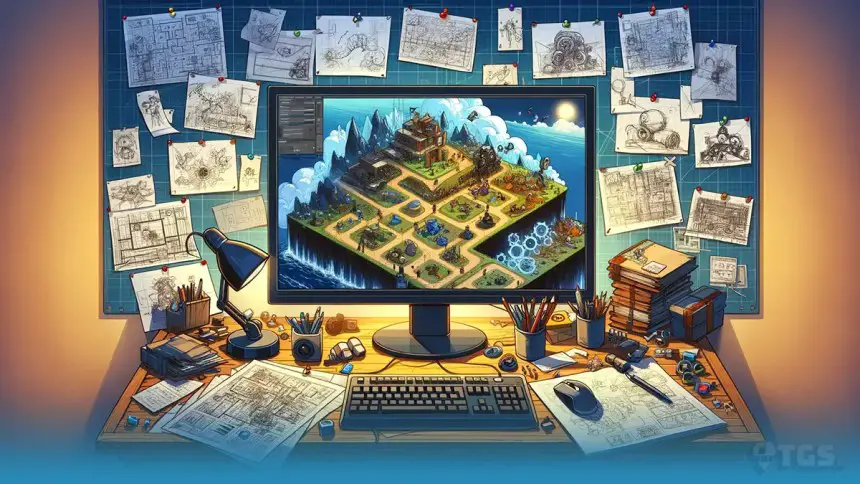Video games are a visual and interactive art form, and one of the cornerstones of this art is the level system. This article aims to discuss what the level system is in games, the role of the level designer and its importance in game design.
Description and History of the Level System
Level System Description
- Meaning: In games, “level” or “stage” refers to the sections that the player must go through to achieve certain goals, overcome challenges, and advance the story.
- Structure: These chapters often contain varying difficulty levels, enemies, missions, and story elements.
The Evolution of Level Design in Gaming History
- Early Games: In early video games, level designs were simple and limited. However, these games laid the foundations of modern level design.
- Developing Technology and Design: Over time, with developing technology and increasing creativity, level designs have become more complex and impressive.
The Role and Importance of Level Designer
Level Designer's Duties
- Design Responsibility: Level designers are responsible for the design of the game's sections. It aims to provide players with enjoyable and challenging experiences that combine the game's mechanics, story, and aesthetics.
- Detail and Balance: It is essential to pay attention to details in level design and adjust the difficulty balance of the game.
Impact on Gaming Experience
- Player Loyalty: A well-designed level draws players into the world of the game and offers them unforgettable experiences.
- Difficulty and Progression: Level designers create challenges and progression paths appropriate to the player's skill level.
Elements of Level Design
Level design includes a number of important elements. These elements directly affect the gameplay and player experience.
Structure of the Game World and Visual Design
- Mechanical and Aesthetic Integration: Level designers harmoniously integrate game mechanics and visual aesthetics. This affects the way and experience the player explores the world.
- Diversity and Originality: Each level offers variety with different visual themes and structures. This constantly gives players new and fresh experiences.
Difficulty Level, Storytelling and Player Guidance
- Difficulty Level: Level design offers challenges appropriate to the player's skill level. This supports the player's development and the progression of the game.
- Story and Character Development: Level design plays an important role in telling the story and character development.
- Player Journey: A well-designed level takes the player on a specific journey, guides and directs the overall flow of the game.
Level System and Its Effects on Game Types
Game genres require different approaches to level design. Each type emphasizes various aspects of level design to provide the player with a unique experience.
Level Design in Different Game Types
- Action and Adventure Games: These types of games usually have level designs that are dynamic and full of obstacles. They test the player's reflexes and problem-solving abilities.
- Strategy games: Strategy games offer level designs that highlight the player's decision-making abilities and tactical thinking.
- Role Playing Games (RPG): In RPGs, level design places great emphasis on storytelling and character development.
Effects of Level Design
- Contribution to Game Experience: Level design reinforces the overall theme and atmosphere of the game and adds depth to the player's experience.
- Playability and Replayability: Well-designed levels increase the playability and replayability of the game.
Level design is one of the fundamental components of video games and directly affects the quality of the gaming experience. In this article, we examined the definition of the level system, the role of the level designer, and the importance of level design in different game types. Each game type offers unique experiences to players with their unique level designs. Well-thought-out and creative level designs enrich the story, atmosphere and gameplay of the game, thus providing players with unforgettable moments.
During the game development process, level designers form the heart of the game. Their creativity and technical skills ensure that video games are not only fun, but also artistically and mentally satisfying. In the future, with the development of technology and game design, level design is expected to become even more innovative and impressive.
What do you think about this subject? Do not forget to share your thoughts with us in the comments section. For all our content The Gamer Station All Contents
The products discussed here have been independently selected by our editors. If you purchase something featured on our site, The Gamer Station may receive a share of the revenue.
The original language of the articles is Turkish. We broadcast in 18 different languages. If you see a wrong sentence or word in the content, please feel free to inform us in the comments!




